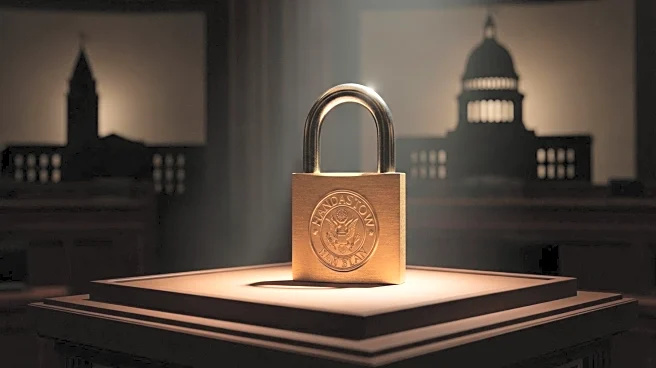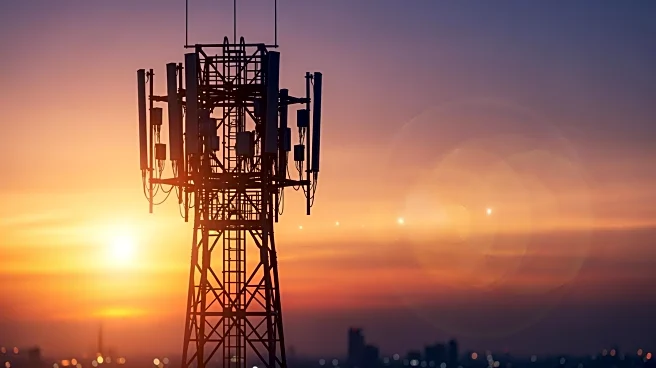What is the story about?
What's Happening?
The U.S. government has shut down for the first time in six years due to Congress's failure to pass a funding measure. This shutdown results in hundreds of thousands of federal employees being furloughed, while essential workers continue without pay. The impasse stems from disagreements over extending current funding and enhancing Obamacare subsidies. As the shutdown continues, the Senate plans to vote on the GOP funding plan, with Republicans pushing for daily votes until an agreement is reached.
Why It's Important?
The government shutdown has significant implications for federal employees, who face financial uncertainty due to unpaid work. It also affects public services and operations, potentially leading to delays and disruptions. The political standoff highlights ongoing tensions between Republicans and Democrats, impacting legislative processes and public policy. The shutdown may influence public opinion and voter sentiment, affecting future elections and political dynamics.
What's Next?
The Senate will continue to vote on the GOP funding plan, with Republicans aiming to pressure Democrats into agreement. The outcome of these votes will determine the duration of the shutdown and its impact on federal operations. Stakeholders, including political leaders and civil society groups, may engage in negotiations to resolve the impasse and restore government functions.
Beyond the Headlines
The shutdown underscores broader issues in U.S. politics, such as partisan divisions and legislative gridlock. It raises questions about the effectiveness of current governance structures and the need for reforms to prevent future shutdowns. The situation may prompt discussions on political accountability and the role of compromise in policymaking.















